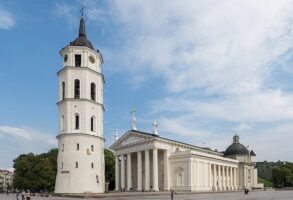
Published February 29, 2024
As America plunges into another election season, the question of the role of Christianity and Christians in the nation’s life is once again an urgent one. “Christian nationalism” is the current boogeyman of the left. As with “wokeism” for the right, it seems a somewhat slippery term. As Andrew Walker noted in a WORLD Opinions column, Christian nationalism is even being used as a catch-all for anyone holding to a variety of previously unexceptional positions. Its close relative, “theocracy,” is even being applied to those who allow their religious beliefs to shape their moral convictions.
No doubt there are real racists and nationalists who use Christian idioms to express their ideological commitments. Only time will tell whether these interlopers are sufficient in number to be an “existential threat” to democracy (as both they and their most vocal opponents like to think) or (as I suspect) they are merely self-important social media types of little or no real-world significance. What is more certain is that they will do damage to congregations and possibly denominations by distracting Christians and the church from the central tenets of the gospel. And our churches need to put in place means of addressing this.
This is where American evangelicalism needs once again to look to the great historic creeds and confessions of the Church. That documents last over time is not necessarily an indication that they are true, but it does suggest that the topics they address have significance beyond the time when they were initially composed. There is a reason why Christians still recite the Nicene Creed. It was written in the fourth century but it speaks of the identity of God the Father, the Son, and the Holy Spirit. That is not something that was relevant in Constantinople in 381 and then rapidly faded into insignificance. It is a truth as vital today as it was then.
Click here to continue reading.
Carl R. Trueman is a fellow in EPPC’s Evangelicals in Civic Life Program, where his work focuses on helping civic leaders and policy makers better understand the deep roots of our current cultural malaise. In addition to his scholarship on the intellectual foundations of expressive individualism and the sexual revolution, Trueman is also interested in the origins, rise, and current use of critical theory by progressives. He serves as a professor at Grove City College.









